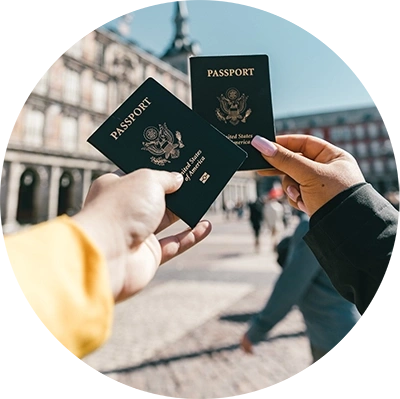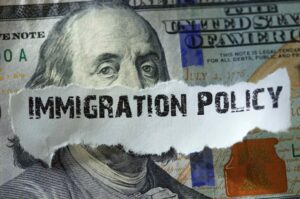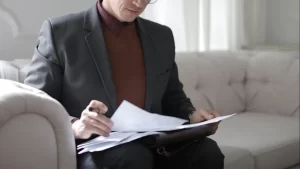F2B Visa: A Comprehensive Guide for Families Reuniting in the U.S.

For U.S. lawful permanent residents (LPRs), the F2B visa is an important pathway for unification with their single adult children. This visa has special criteria in the second family preference category, including a numerical cap influencing processing periods. A seamless application process depends on an awareness of these elements, expenses, necessary documentation, medical examination processes, and other factors.
Understanding the F2B Visa Category
What is the F2B Visa?
U.S. green card holders may sponsor their unmarried adult children (aged 21 and over) to live and work permanently in the United States with the F2B visa. Unlike the F2A visa, which includes spouses and minor children, the F2B visa has annual numerical restrictions that cause a higher waiting time than those for immediate relative visas.
Criteria for Eligibility

The petitioner for the F2B visa has to be a legal permanent resident of the United States. The applicant needs to be the petitioner’s unmarried son or daughter above the age of twenty-one. Married children and those under 21 who might be qualified for other visa categories are excluded from this group.
Application Process for the F2B Visa
Step 1: Filling Form I-130
The F2B visa process starts with the petitioner submitting Form I-130, Petition for Alien Relative, with the U.S. Citizenship and Immigration Services (USCIS). This form starts the visa application and establishes the qualifying relationship.
Step 2: Approval and Transfer to NVC
The case gets transferred to the National Visa Center (NVC) upon approval of the I-130 petition. Determining when the applicant can proceed with their visa application depends critically on the priority date the NVC sets. The applicant has to wait until the Visa Bulletin indicates their priority date becomes current.
Step 3: Fees and Costs
Applications for the F2B visa involve several costs:
- Form I-130 Filing Fee: Paid by the petitioner, form I-130 filing fee is roughly $535.
- DS-260 Processing Fee: Paid about $325 when the priority date turns current.
- Medical Examination Fee: Usually ranging from $200 to $500, varies depending on the nation and medical provider.
Travel expenditures for the consular interview and other administrative fees could be extra charges.
Required Documents for the F2B Visa

Completing the F2B visa application requires much paperwork:
- Proof of Relationship: Birth certificates, adoption records, or other legal records attesting to the petitioner’s link with the applicant constitute proof of marriage.
- Form I-130 Approval Notice: One copy of the USCIS approval note was obtained.
- DS-260 Confirmation Page: Documentation proving DS-260 form submission.
- Civil Documentation: Includes police clearance certificates, marriage certificates (if relevant), and birth certificates.
- Affidavit of Support (Form I-864): Form I-864, Affidavit of Maintenance, is a legal document proving the petitioner has enough income to maintain the applicant in the United States.
Medical Examination
Candidates for the F2B visa have to pass a medical exam overseen by a doctor approved either by the U.S. Embassy or Consulate.
- Vaccine Requirements: Applicants must meet specific immunization criteria according to the medical inspection. Ignoring the regulations could lead to visa rejection or delays.
- Medical History and Physical Examination: We check the candidate physically and review her medical data.
- Tuberculosis Testing: Candidates above the age of 15 plus, if necessary, chest X-rays.
Directly delivered to the consular office, the results of the medical examination guide visa eligibility for the application.
Consular Examining
After the medical examination, the applicant will go through a consular interview accumulating the required records. During this interview, a consular officer will evaluate the applicant’s eligibility and ensure that all the material they provide is accurate and complete all around. The officer would look at the applicant’s past, immigration objectives, and American objectives.
Post-Interview Process

If the consular officer approves the F2B visa application, the applicant’s passport will be stamped with the visa, therefore granting legal permanent resident access to the United States. Entering the United States within the validity of the visa is quite important. Arriving, the applicant will get a sealed packet of records that has to be shown to U.S. Customs and Border Protection authorities.
Common Issues and Solutions
Processing Delay
High demand and the numerical cap on F2B visas could cause applicants to have notable delays. To be informed about any changes in the processing schedule, routinely review the Visa Bulletin and keep in touch with the NVC and consular offices.
Error in Documentation
Common causes of delays and denials are inaccurate or insufficient documentation. For accuracy and completeness, candidates should thoroughly go over all forms and supporting records. Speaking with an immigration attorney will help to guarantee that all documentation is accurately generated and submitted.
F2B Visa Backlog & Wait Times
Understanding the Visa Bulletin
Like other family preference visas, the F2B visa group has annual numerical restrictions. Consequently, the annual issuance of visas is limited to a particular count. Monthly updates on visa availability and priority date cut-offs for every category and nation of origin are published by the U.S. Department of State in the Visa Bulletin.
Factors Affecting Wait Times
Several elements can affect the F2B visa processing time, including:
- Country of Chargeability: Due to greater demand, applicants from nations with high rates of immigration to the United States, such as Mexico and the Philippines, can experience longer wait times.
- Annual Visa Cap: A backlog results from not all applicants being able to obtain a visa straight away due to the limited number of visas available each year.
- Policy Changes and Administrative Delays: Processing times and priority date movement can also be impacted by changes in U.S. immigration laws or administrative procedures.
To know where they stand in the queue, applicants have to keep track of their priority date and often refer to the Visa Bulletin. An applicant may proceed with the following stages of the Visa Application process if their priority date comes earlier than the date indicated in the Visa Bulletin for their country and visa category.
Alternatives in Immigration

If their situation changes, some candidates may use other immigration paths while awaiting the F2B visa. As an example:
- Change in Petitioner’s Status: If the petitioner becomes a U.S. citizen, the applicant may be able to upgrade to the F1 visa category for single sons and daughters of the United States. Usually, this category’s waiting time is less.
- Marriage: If the applicant married a U.S. citizen, they could be eligible for an immediate relative visa—which does not have a numerical cap or waiting period.
- Employment-Based Visas: Depending on their credentials, experience, and job offers from American companies, some candidates can be qualified for employment-based visas.
Common Mistakes To Avoid
Navigating the F2B visa process can be difficult, and applicants sometimes run across hazards that might postpone or compromise their visa approval. These are some common mistakes to stay clear of:
- Incomplete or Inaccurate Documentation: Providing inaccurate or inadequate documentation could cause delays, demands for more proof, or even denials. Verify all forms and records before sending them in.
- Not Keeping Copies of Submitted Forms: Always keep copies of all forms and documentation you turn in. This system helps in case tracking and handling of any arising problems.
- Ignoring the Visa Bulletin: Ignoring the Visa Bulletin will cause you to miss chances to progress in the visa application when your priority date becomes current.
- Failure to Respond to Requests for Evidence: If USCIS or the NVC asks for further evidence or documents, answer quickly and comprehensively. Ignoring these requests could result in case denial.
Conclusion
Need assistance with your application for an F2B visa? Our knowledgeable lawyers at Passage Law are available to proceed with you through every stage. Visit Passage Law right now for individualized help and begin your path to being with your loved ones in the United States. Please get started by contacting us right now!
